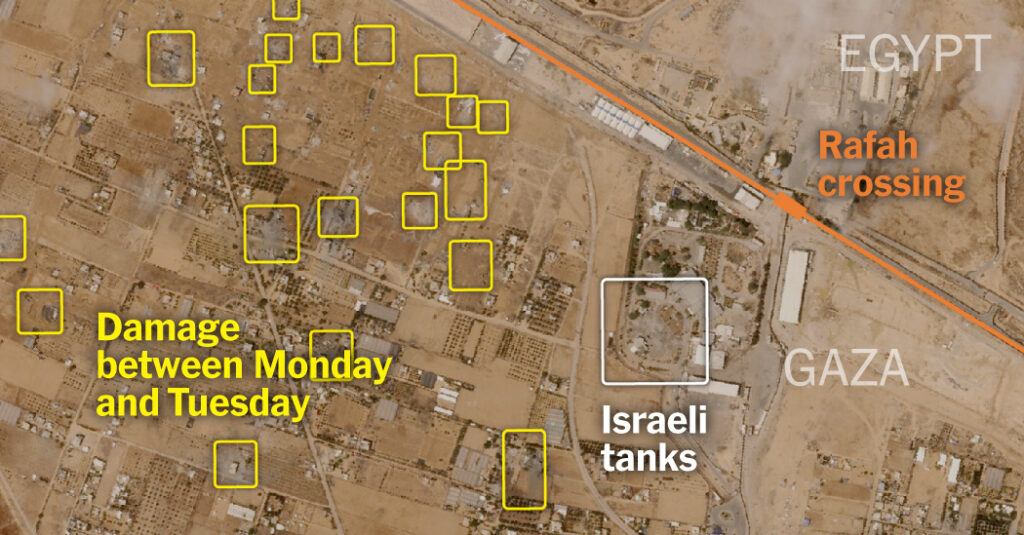New satellite images taken after Israeli forces entered Rafah show widespread destruction in the southern Gaza city, including large swaths of flattened buildings and swarms of Israeli armored vehicles.
Source: Satellite imagery from Planet Labs
Although Israel said its operations, which began earlier this week, were limited, images taken by commercial satellite company Planet Labs on Tuesday morning showed extensive damage in parts of the city.
The network of damaged buildings stretched for more than two miles near Rafah’s border with Egypt. Israel seized the crossing this week.
Photos and videos released by the Israeli military in the same area showed tanks near the crossing at the same time on Tuesday morning.
While it’s impossible to know exactly what caused the damage shown in the satellite imagery, much of what can be seen is consistent with the consequences of Israeli clearance operations and other ground operations elsewhere in the Gaza Strip.
Source: Satellite imagery from Planet Labs
Israel calls Rafah the last stronghold of Hamas and an important gateway for smuggling weapons from Egypt into Gaza. It expressed its determination to ensure that the militants who attacked Israel on October 7 no longer pose a threat.
But Rafah has also become a haven for more than a million Palestinians who have fled Israeli bombing in other parts of Gaza amid widespread fears that a full-scale invasion could have catastrophic consequences.
In addition to this, Rafah was one of the two main entry points for the vast majority of aid entering Gaza during the war. Since the start of Israel’s recent military campaign, no fuel or aid Scott Anderson, deputy director of UNRWA, the main U.N. aid agency in Gaza, said it had been successful.
Source: Israeli military announcement
On Monday, the Israeli military ordered about 110,000 people to evacuate parts of Rafah. The Palestinian Red Crescent said thousands of people left the city and reported “escalating Israeli air strikes in eastern Rafah”.
Local health authorities warned of a “significant increase” in the death toll as a result of Israel’s heavy bombardment across Gaza, especially Rafah. Dr. Marwan al-Hams, director of Abu Yousef al-Najjar Hospital in Rafah, said on Tuesday that 58 bodies of people killed in Israeli attacks had arrived at the hospital since Sunday.

